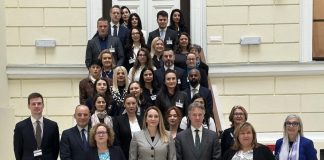The far-right German political party Alternative für Deutschland (AfD) has outlined a controversial platform in its draft election manifesto, calling for an end to sanctions against Russia, withdrawal from the European Union, and a departure from the Paris Climate Agreement. The proposals also include abolishing the euro and imposing stricter laws on abortion.
Source of Details
According to reports from Deutsche Presse-Agentur (DPA), the 85-page draft document will be formally discussed at the party’s conference scheduled for 11–12 January. The manifesto reflects AfD’s continued push towards Euroscepticism and national conservatism, with a focus on limiting Germany’s involvement in supranational agreements and institutions.
Key Points of the Programme
AfD’s programme criticises the European Union, claiming it has evolved into a “superstate with a planned economy” that undermines national sovereignty. The party’s proposed solution involves Germany withdrawing from the EU and forming “a new European community” based on intergovernmental cooperation.
The manifesto also calls for:
- Lifting economic sanctions on Russia: The party argues that such measures are counterproductive and detrimental to Germany’s economic interests. It advocates the reactivation of the Nord Stream gas pipeline, which has been at the centre of geopolitical tensions.
- Abandoning the euro: AfD proposes reinstating a national currency, asserting that the euro has led to financial instability and constant bailouts.
- Exiting the Paris Climate Agreement: The manifesto dismisses Germany’s climate policies as costly and ineffective, favouring a return to more traditional energy sources.
Social Policies and Abortion
The draft manifesto also contains contentious social policies. The party seeks to ban abortion outright, introducing mandatory measures for pregnant women to view ultrasound images of their foetuses during consultations. AfD describes this as an effort to ensure women are fully informed about the development stage of their unborn child.
Political Context
AfD has steadily gained traction in German politics, particularly in regions of former East Germany, by appealing to voters disillusioned with mainstream parties. Its anti-immigration stance and criticism of the EU have drawn comparisons to other far-right movements across Europe.
However, the party’s positions, especially on withdrawing from the EU and abandoning the euro, have drawn criticism from economists and political analysts. They argue such moves could have severe economic repercussions for Germany and destabilise the broader European project.
Upcoming Conference
The January conference will determine whether the draft programme is adopted in full. If endorsed, it will form the cornerstone of AfD’s campaign for the upcoming federal elections, likely intensifying debates about Germany’s role in Europe and its international alliances.
AfD’s increasingly polarising agenda comes at a time of heightened political and economic challenges within the EU, raising questions about the bloc’s unity and future direction.





